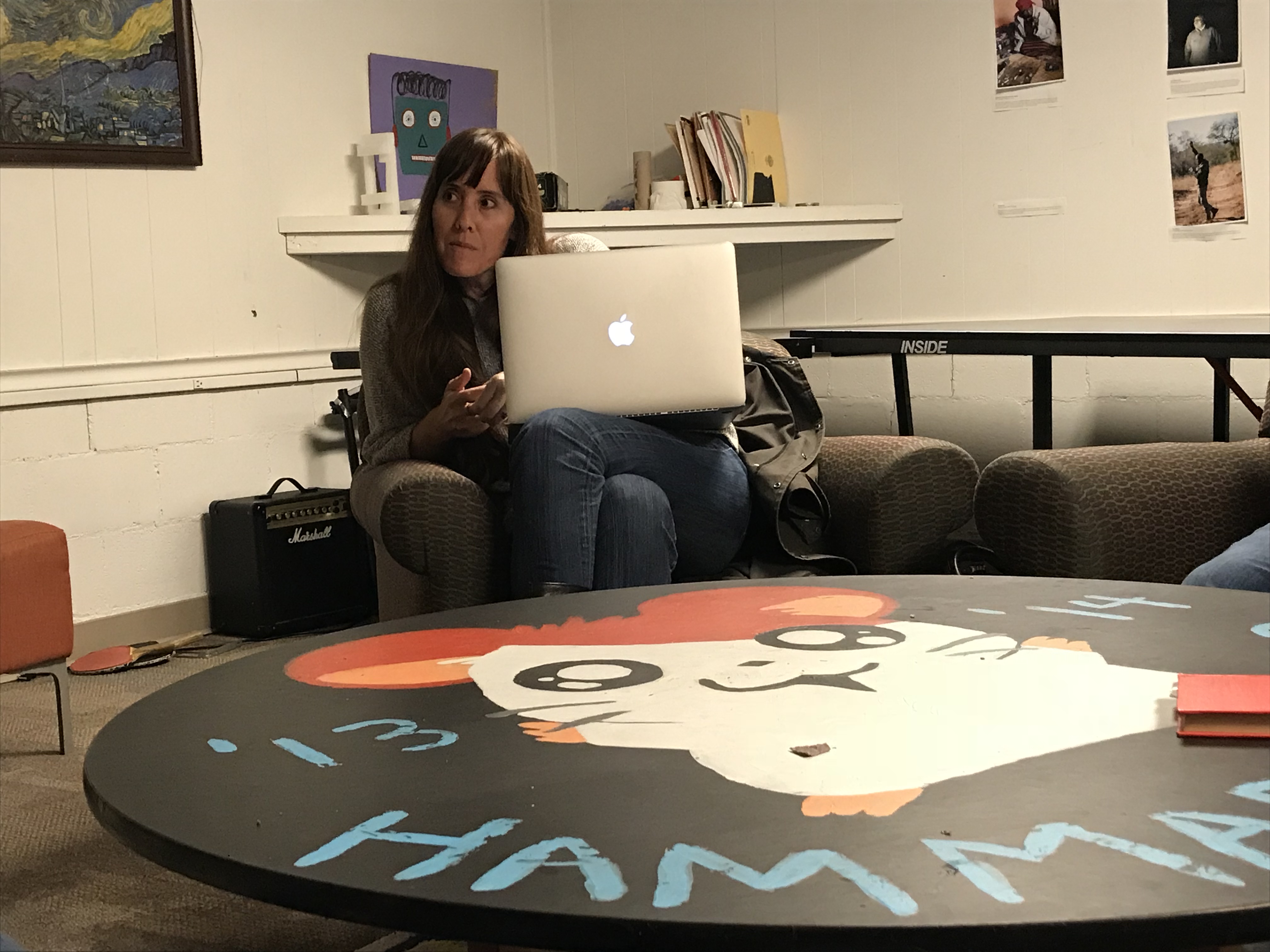On Tuesday, the newly formed Stanford chapter of the Young Democratic Socialists of America (YDSA) hosted Laura Hanna — co-founder of financial advocacy group the Debt Collective — in a teach-in discussion about tools for disputing student loans and other types of debt.
YDSA is the youth section of the Democratic Socialists of America, the largest socialist organization in the United States. YDSA has chapters in high schools and colleges across the country.
The Debt Collective describes itself as an organization that conducts “direct actions and campaigns of non-cooperation with the finance industry” and uses collective bargaining power to achieve debt cancellation.
The Collective’s free tools, which were the topic of Hanna’s presentation, are designed to enable people to dispute credit report errors, private student loans and the seizure of wages and tax returns due to federal student loans.
“People are struggling and broke across the country in different ways,” Hanna said. “We’re looking at that structural problem and at indebtedness as a source of power if it is collectivized. Debt becomes money … and if you collectivize that, you’re looking at collective bargaining.”
The Debt Collective teach-in was Stanford YDSA’s first public event since its inception last spring.
According to founder Peter Morgan ’19, he was inspired to bring YDSA to campus after frustration with the “center-left tendency” of politics at Stanford, as well as the organization’s focus on national issues.
“I don’t think many people at Stanford are thinking, for instance, [about] housing policy right outside [campus] … or, for instance, Medicare for All, or these local propositions that people here actually can vote for,” Morgan said.
On a campus that already has multiple left-leaning political groups, including Stanford Democrats and the Stanford branch of the International Socialist Organization (ISO), YDSA hopes to serve as a “nexus” for multiple campus communities to come together for activism on local issues.
Currently, Stanford YDSA plans to table and conduct phone banking in support of Proposition 10, a California ballot initiative that would expand rent control in the state, as well as work with the nascent Stanford Coalition for Healthcare Reform toward improving Cardinal Care.
Stanford YDSA also aims to be a “big-tent” organization, open to members with a broad spectrum of liberal views rather than restricting itself to a specific ideology. Although they are part of a national organization and intend to participate in broader California DSA activism, they also operate with a “horizontal democratic approach” wherein all group actions and stances are open to discussion.
“It’s not something where we have to consult Marx or anything,” Morgan said. “We can have a discussion based on our own principles and based on what’s relevant for us.”
In carving out YDSA’s niche on campus, member Jacob Kuppermann ’19 emphasized YDSA’s distinguishing focus on direct action, as opposed to what they see as Stanford ISO’s focus on educational events.
“They do a lot of very good work in terms of educating and raising awareness of socialism on campus and in working with groups on a variety of issues relating to leftism, but it feels like their focus is more educational than action-driven, and less based on doing actual work on campus and in communities around these issues,” Kuppermann said.
However, in an email to The Daily, ISO member Grant Hallee ’19 contested Kuppermann’s characterization, citing ISO’s involvement with the Stanford Against Islamophobia coalition and rallies after the 2016 elections, among other actions.
Hallee instead said that the main differences are organizational and ideological. Whereas YDSA is largely decentralized in terms of national leadership, ISO operates as part of a national political organization. In addition, while YDSA terms itself a “big-tent organization,” ISO members are “specifically Marxists and revolutionary socialists,” according to Hallee.
Regardless, both groups affirmed a willingness to work together.
“We don’t want to fall into the trap of socialists who turn left-wing disputes into these little tribalist … chiefdoms of 10 people reading about Marx,” said Kuppermann. “That’s not what we want — I don’t think that’s what ISO wants either.”
Contact Erin Woo at erinkwoo ‘at’ stanford.edu.
